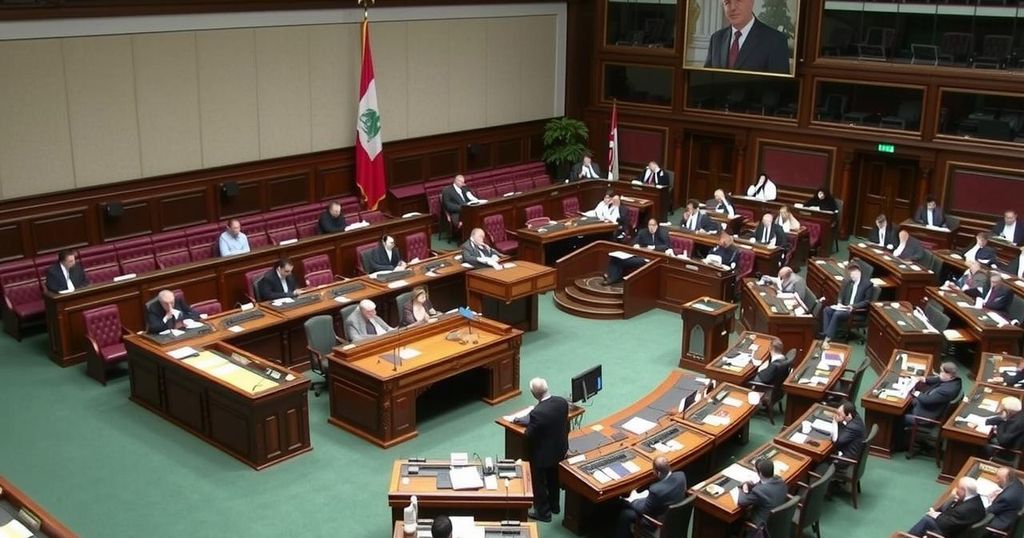Lebanon’s parliament is set to vote for a new president after a two-year vacancy, with General Joseph Aoun as the leading candidate following Suleiman Frangieh’s withdrawal. Aoun’s potential election is critical for forming a stable government amidst Lebanon’s ongoing economic crisis and recovery from recent conflicts.
Lebanon’s parliament is poised to conduct its thirteenth vote to elect a president, a position that has remained vacant for over two years. The frontrunner for the presidency is General Joseph Aoun, the commander of the Lebanese army. He is considered to be the preferred candidate of the United States and Saudi Arabia, crucial partners as Lebanon strives to recover from a prolonged conflict involving Israel and Hezbollah.
In recent developments, Suleiman Frangieh, who had garnered support from Hezbollah and was also a potential contender, has announced his withdrawal from the race and has endorsed General Aoun. This endorsement has significantly increased Aoun’s chances of being elected, as it may unify fragmented political support in Lebanon’s complex sectarian system.
The parliamentary voting procedure is complicated by Joseph Aoun’s current military position, which technically disqualifies him from the presidency under Lebanese constitutional law. However, past precedents have allowed for waivers, though Aoun will still face challenges to secure a two-thirds majority needed even during a second ballot. Other potential candidates include Jihad Azour, a former finance minister associated with the International Monetary Fund, and Elias al-Baysari, the acting head of the General Security agency.
The urgency for a new president cannot be overstated, as the appointed leader will be tasked with forming a permanent government amidst Lebanon’s ongoing economic and political crises. A caretaker administration has been in charge since the end of President Michel Aoun’s term in October 2022, but it has limited powers and has struggled to address the country’s profound economic challenges. Throughout the past six years, Lebanon has faced a severe economic downturn, depleting its currency and affecting the livelihoods of many citizens.
Lebanon’s ongoing struggle to elect a president is deeply rooted in its sectarian power-sharing political system, which makes reaching a consensus challenging. The country is recovering from a prolonged period of conflict involving Israel and Hezbollah, and leadership stability is critical for addressing serious economic issues. Lebanon has experienced multiple presidential vacancies in its history, with the longest lasting 30 months. General Joseph Aoun’s candidacy represents a potential shift in leadership dynamics, given his backing from Western and regional powers. As Lebanon grapples with an economic crisis and the need for governmental reforms, the urgency for a functioning presidency is paramount.
In conclusion, Lebanon’s parliament is making another attempt at electing a president after more than two years of vacancy, with General Joseph Aoun emerging as the leading candidate following Suleiman Frangieh’s withdrawal. The current political climate, characterized by a constitutional ban on Aoun’s presidency and the need for significant political support, adds complexity to the election process. Moving forward, the appointment of a president is vital for Lebanon to restore governance and begin addressing the economic and humanitarian crises it faces.
Original Source: www.hindustantimes.com






